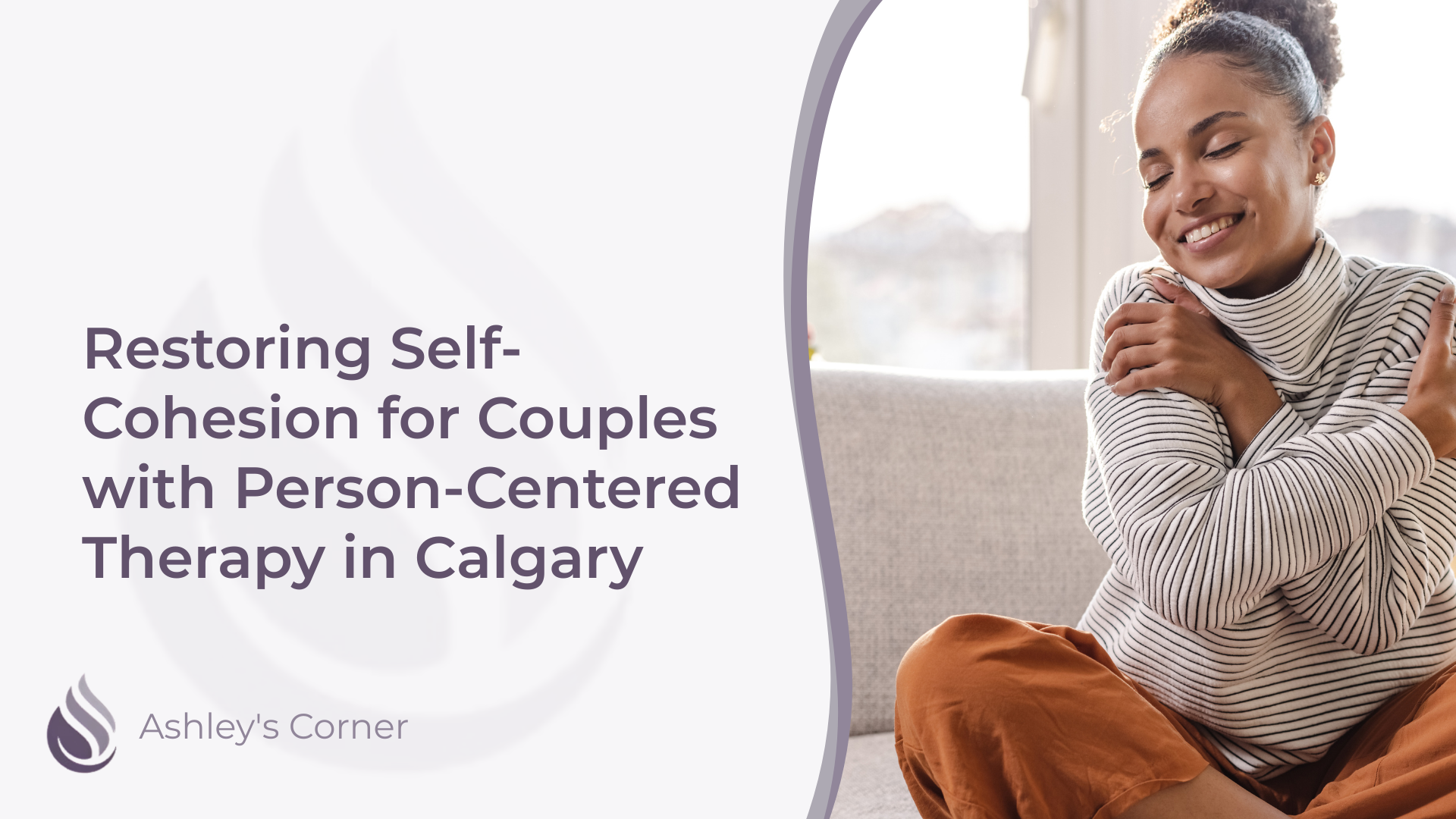
22 Oct Restoring Self-Cohesion for Couples with Person-Centered Therapy in Calgary
Relationships thrive when both partners feel seen, heard, and accepted without judgment—and that’s where person-centered therapy in Calgary can make a profound difference. Grounded in empathy, authenticity, and unconditional positive regard, this approach helps couples rebuild trust, restore emotional intimacy, and reconnect with their individual sense of self while strengthening the relationship.
Is Person-Centered Therapy Right for You?
Person-centered therapy, developed by psychologist Carl Rogers, focuses on creating a therapeutic environment where clients feel safe to explore their thoughts and emotions freely. Rather than taking a directive or problem-solving role, the therapist acts as a supportive guide, helping clients discover their own insights and solutions.
Unlike more structured methods like cognitive-behavioral therapy (CBT) or psychodynamic therapy, person-centered therapy emphasizes unconditional positive regard, empathy, and congruence—the therapist’s genuine authenticity. These core principles make person-centered therapy in Calgary a highly collaborative and client-led process.
How Does Person-Centered Therapy Work?
In a typical session, the therapist fosters a warm, non-judgmental environment where open dialogue flows naturally. Techniques like reflective listening help clients feel truly understood, while gentle guidance encourages self-discovery and emotional clarity.
For couples, this approach allows each partner to express themselves without fear of criticism, leading to a deeper understanding of each other’s needs and experiences. Person-centered therapy in Calgary is not about quick fixes—it’s about cultivating a safe space where both partners can grow together and individually.
Who Can Benefit from Person-Centered Therapy?
This approach is well-suited for:
- Couples struggling with emotional disconnection or communication barriers
- Individuals experiencing anxiety, depression, or self-esteem challenges
- Teens, adults, and partners seeking personal growth and deeper self-awareness
- Those who value autonomy and emotional safety in the therapeutic process
Whether you’re facing a life transition, healing from past wounds, or striving to restore self-cohesion within your relationship, person-centered therapy in Calgary offers a compassionate path forward.
Pros and Limitations of Person-Centered Therapy
Pros:
- Encourages self-acceptance and emotional healing
- Builds trust and genuine therapeutic connection
- Empowers clients to lead their own healing journey
Limitations:
- May not be ideal for those seeking a highly structured, solution-focused approach
- Progress can take time, as the process is paced by the client’s comfort level
How to Know If It’s Right for You
If you value emotional connection, are open to self-exploration, and appreciate a non-directive style of therapy, person-centered counseling may be a strong fit. Reflect on past therapy experiences, consider your comfort level with vulnerability, and trust your instincts about emotional safety with a therapist.
Working with Still Waters Team: A Supportive, Person-Centered Approach
Still Waters Team offers a compassionate, client-led experience rooted in person-centered principles. She works alongside individuals and couples to foster understanding, acceptance, and meaningful change. In her Calgary practice, Dr. Shaw provides a safe, empathetic space for couples to restore their bond while nurturing personal growth.
Listening to Yourself Is the First Step
Person-centered therapy in Calgary can be life-changing for couples ready to rebuild trust and deepen emotional intimacy. By prioritizing empathy, authenticity, and respect, this approach empowers both partners to reconnect with themselves—and with each other.
If you’re ready to begin your journey toward self-cohesion and relationship healing, reach out to Still Waters Team today and take your first step toward lasting change.




No Comments